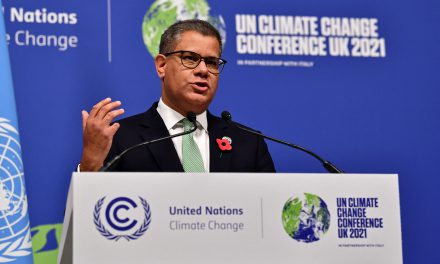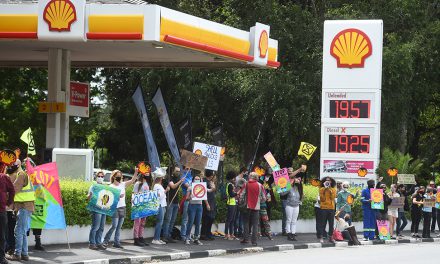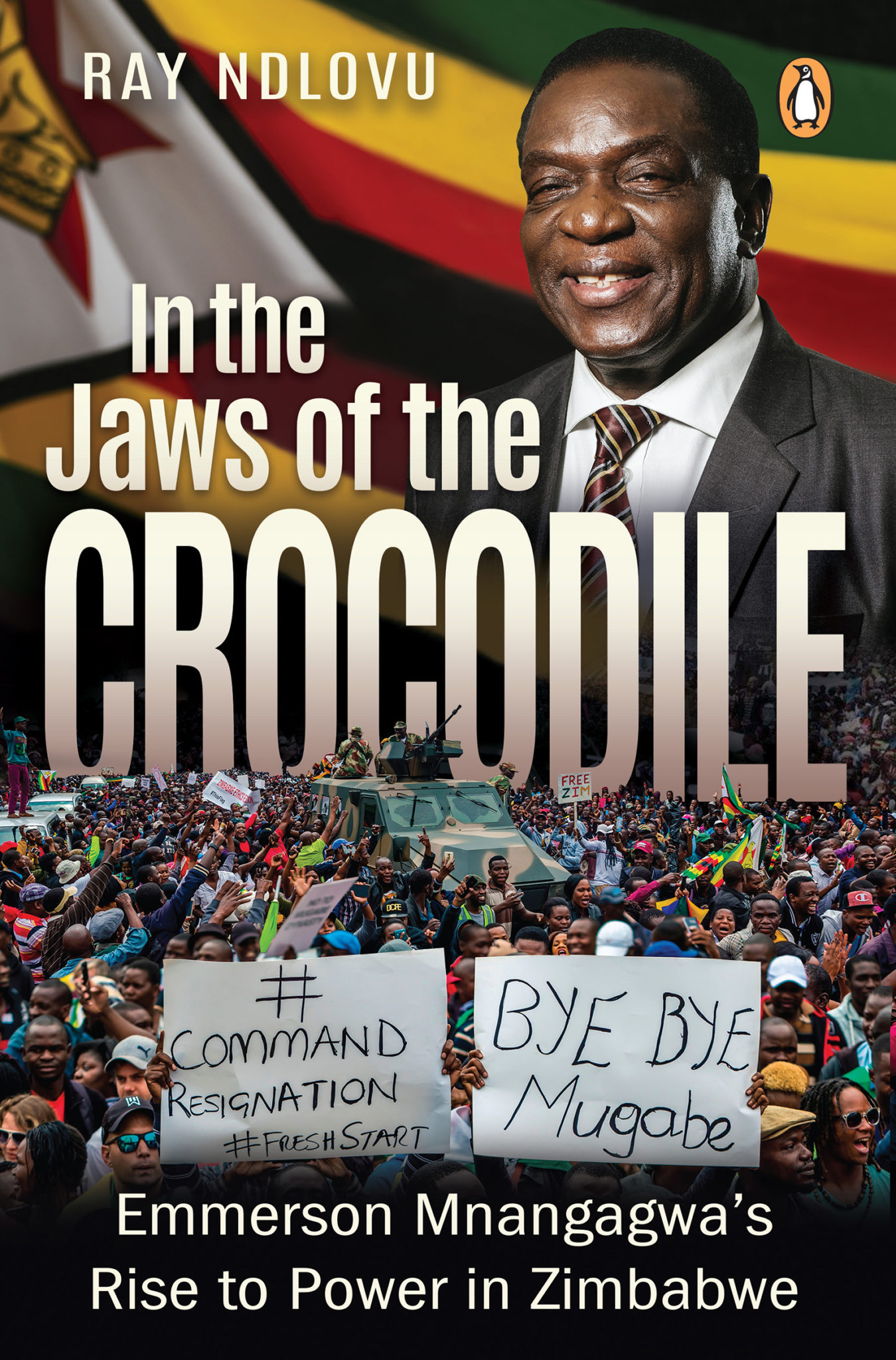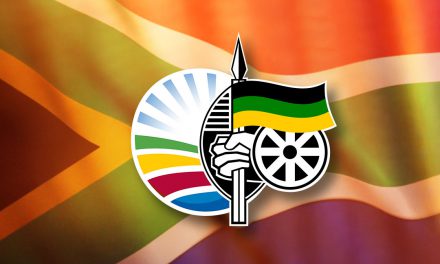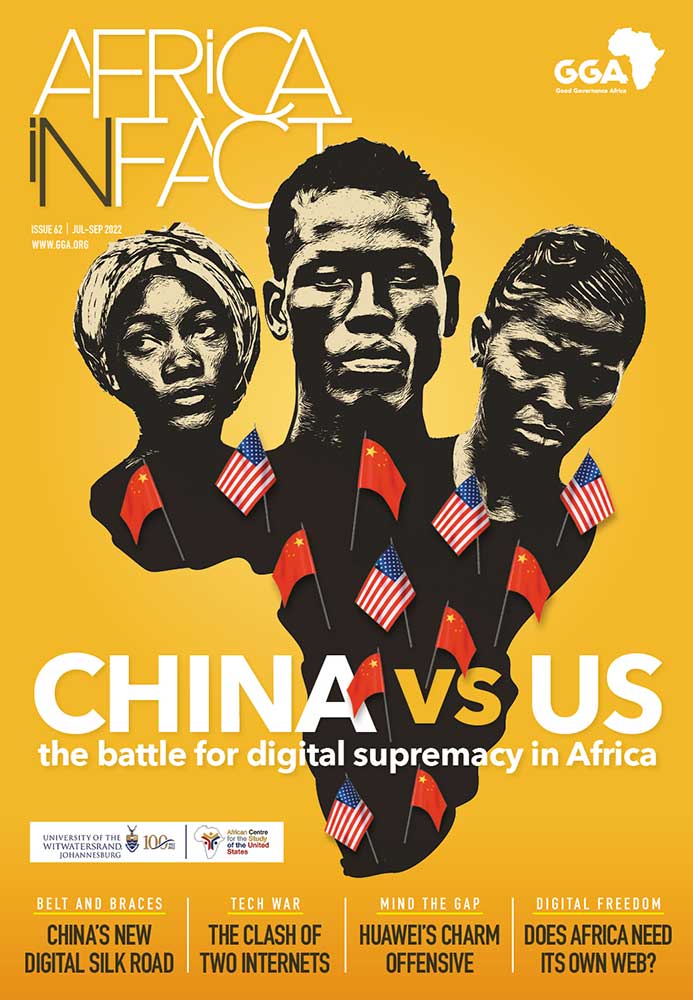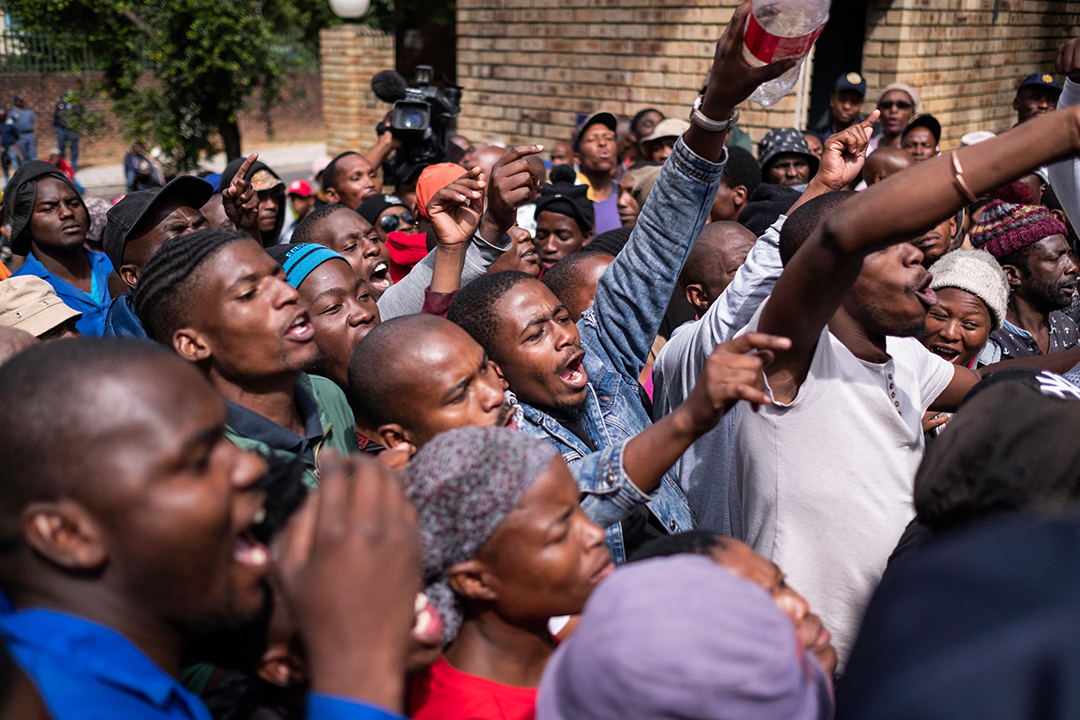
Residents of the Alexandra township gather in front of the Gauteng local municipal offices in Sandton, Johannesburg, on 8 April 2019 to protest against the lack of service delivery of basic necessities such water and electricity. Photo: Wikus de Wet/AFP
Much of the coverage ahead of the November 2021 South African Local Government Elections (LGEs) has focused on the state of service delivery and administration within the country’s 257 municipalities. Besides the 205 local and 44 district municipalities, it is worth ascribing greater emphasis to the country’s eight metropolitan municipalities (metros).
According to 2020 estimates by Statistics South Africa, more than four in 10 South Africans live in these municipalities, and they have a combined population of more than 25 million people. Their combined annual expenditure budgets also demonstrate the importance of the metros within South Africa’s local government sphere. For the 2020/21 fiscal year, their budgets equated to R278.4 billion compared to the aggregate expenditure budget of R494.5 billion across all municipalities. The functioning and performance of these zones are critical to the development of the country.
Background on the constitution of the metros
The role of metropolitan municipalities was established in Chapter 7 of the South African Constitution. The constitution describes these as Category A municipalities with “exclusive municipal executive and legislative authority in its area”. The criteria for determining whether a municipality can be categorised as a Category A municipality is contained in the Municipal Structures Act 117 of 1998. Presently, there are eight Category A municipalities in South Africa: Buffalo City, City of Cape Town, Ekurhuleni Metropolitan Municipality, City of eThekwini, City of Johannesburg, Mangaung Municipality, Nelson Mandela Metropolitan Municipality, and the City of Tshwane. The metropolitan municipalities are tasked with significant governing responsibilities at a broader scale, given their sheer size and population numbers as cities. They are responsible for providing services, building and maintaining infrastructure, and municipal planning. Given the increased levels of urbanisation in South Africa, they also have a pivotal role in helping realise the goal of “developmental local government”, which was first articulated in the 1998 White Paper on Local Government.
The GPI
Ahead of the LGEs, Good Governance Africa has launched its 2021 Governance Performance Index (GPI). The GPI ranks the performance of municipalities across South Africa. Metropolitan municipalities were scored according to data gathered on twenty indicators under four governance categories: Administration, Service Delivery, Planning and Monitoring and Development. Metros were ranked using the most recent available data collected from Statistics South Africa, the Auditor General MFMA, the COVID-19 special reports, and the National Treasury. Owing to its importance within the mandate of municipalities, Service Delivery was the category weighted greatest. Some of the most critical indicators included determining the state of service delivery in terms of access to piped water, sewerage systems, electricity, and weekly refuse removal.
Also substantial was the extent to which metros succeeded in providing free basic services to households defined as indigent – an essential role of local government in fulfilling the constitutional objectives of equality and development. The Administration category considered the financial sustainability of the metros and looked at the results of their three most recent audit outcomes. The Planning and Monitoring category examined whether the municipalities had met the required standards for annual plans and implemented various monitoring mechanisms necessary for good service delivery. Finally, the Development category assessed the state of indicators such as poverty, unemployment, and formal housing within each of the eight metros.
READ MORE: For more insights into the 2021 GPI, and to access the full rank, read our data story and report here: https://gga.org/data-story/gpi/
How did the metros do on the GPI?
The performance of the metros varied according to each GPI category. On the overall rank, the City of Cape Town finished first, closely followed by Tshwane, Johannesburg, and Nelson Mandela Bay. The strong performance of the City of Cape Town was motivated by its performances in the categories of Service Delivery and Planning and Monitoring. At the same time, similar factors explain the rankings of Tshwane and Nelson Mandela Bay. The City of Johannesburg’s strongest categories were Planning and Monitoring and Administration. However, its overall score was undermined by its weaker performance in Service Delivery – especially in providing free essential services such as water, electricity and sanitation to indigent households. The four municipalities which scored worst were Mangaung, Buffalo City, the City of Ekurhuleni and eThekwini. These metros scored lowest due to their performance in the Administration category. In the case eThekwini and Ekurhuleni, this was due to them running substantial budget deficits in the 2018/19 and 2019/20 fiscal years, while Buffalo City and Mangaung were adversely scored due to their lack of an unqualified audit in each of the fiscal years of 2017/18, 2018/19 and 2019/20. If an Auditor General expresses an audit opinion that is unqualified, then this means that the entity’s financial statements under scrutiny “contain no material misstatements“. These audit opinions are valuable gauges of how the metros have been performing in their financial management. The graph below shows the distribution of how each metro scored on each of the categories included in the GPI.
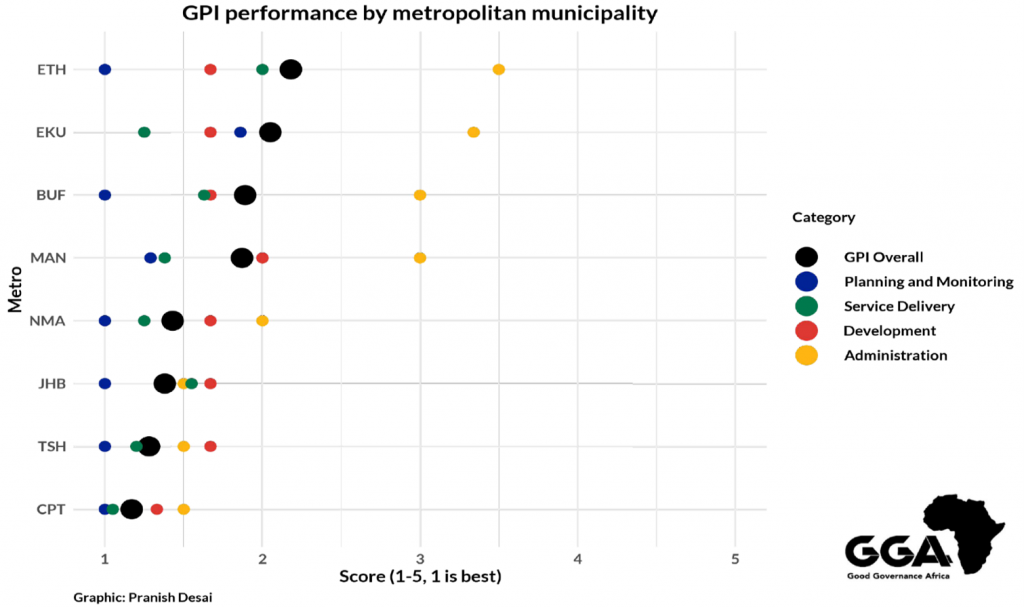
The impact of political instability: a metro-by-metro analysis
-
City of Johannesburg
The City of Johannesburg is the economic heartland of the country. Having been traditionally led by the African National Congress (ANC), the City has faced significant challenges over the last five years since the last Local Government Elections when no single party achieved an outright majority in the elections. Although the ANC gained the largest share of the vote in the 2016 LGEs with 44.5%, they were initially kept out of municipal government by a coalition between the Democratic Alliance (DA) and the Economic Freedom Fighters (EFF). The DA’s Herman Mashaba was elected mayor, but he later resigned from his post on 27 November 2019. The ANC regained control of the city from the DA-led coalition through the election of Geoff Makhubo for the vacant position of mayor. He passed on from COVID-19 complications in July 2021, and his successor, Jolidee Matongo, from a car accident in September 2021. This means that the city has had a total of four mayors in two years. The unstable nature of the councils and persistent allegations of corruption and impropriety have had a bearing on the performance of the metro, particularly in Service Delivery, which was one of its weakest GPI categories.
-
Nelson Mandela Bay
Nelson Mandela Bay was the first opposition coalition-led metro council to dissolve. Following his ascension to the position after the 2016 election in 2018, DA Mayor for the Nelson Mandela Metropolitan Municipality, Athol Trollip, was removed following a vote of no confidence. This move changed the dynamics of the opposition coalitions and signalled their instability and conflict in governance. The DA’s coalition partners, the United Democratic Movement (UDM) and the EFF voted for the UDM’s Mongameli Bobani as the City’s new mayor. Bobani was also removed shortly thereafter. He had, in total – up to that point – survived five motions of no confidence. Thsonono Buyeye was elected as the interim leader, and in December 2020, the DA was back at the helm when its provincial leader Ncaba Bhanga was elected as the mayor.
-
City of Tshwane
The executive capital of the country, the City of Tshwane, has had three mayors over the last five years. The DA’s Solly Msimanga was initially elected as mayor of the governing coalition that was constructed in 2016. His tenure was overshadowed by the irregular awarding of a multi-billion-rand tender contract and irregular personnel appointments. After multiple scandals, he survived two motions of no confidence tabled by the ANC and the DA’s coalition partner, the EFF, in 2018. In January 2019, he effectively resigned from his position. Msimanga was succeeded by his party’s Stephens Mokgalapa, who eventually left a year later following further scandals and was replaced by Randal Williams of the DA. Owing to an administrative impasse, the MEC of the department of cooperative governance and traditional affairs, Lebogang Maile, with the support of the Gauteng Premier, David Makhura, placed the City under administration. Various courts have found this to be unlawful. This situation highlighted the inter-party struggles between provincial governments led by one political party and municipalities run by a different party or a multi-party coalition.
READ MORE: For deeper insight into the nature of coalition formation and its costs and benefits, read @Dr Craig Moffat’s piece on the subject here: https://gga.org/sa-municipal-elections-unpacking-the-coalition-puzzle/
-
City of Cape Town
Having been the first metro to slip from ANC rule in 2011, The City of Cape Town is often cited as the hallmark of effective governance. It is not without controversy, however. In particular, the City is accused of skewing the allocation of resources towards wealthier suburbs. The three most recent Auditor General MFMA reports highlight this problem in no uncertain terms. This is reflected in the metro scoring most poorly in the GPI in the Administration category. In the last five years, the DA-led metro has also faced numerous internal political challenges. Following an apparent breakdown in the working relationship between Cape Town Mayor Patricia de Lille and sections of the DA, the party charged her with allegations of misconduct. Patricia de Lille formally resigned in November 2018 as Mayor of Cape Town and was replaced by Dan Plato.
-
Buffalo City
The City is one of the country’s two youngest metros after being formally established in 2011. Following the 2016 LGEs, the ANC attained 58.74% of the votes and has remained the majority party in the council until now. Xola Phakathi was elected as the mayor, and he is the only mayor in a non-coalition led municipality to serve his entire term. However, the metro has not been without controversy. Frequent allegations of nepotism, corruption and poor service delivery have resulted in the metro receiving qualified audit outcomes in each of the three most recent AG reports, adversely affecting the metro’s performance in the Administration category of the GPI.
-
City of eThekwini
One of the few metros where the ANC attained an outright majority, with the party gaining 56.01% of the vote in 2016, eThekwini has nonetheless faced political challenges in council. After months of legal challenges and infighting controversies, the ANC KwaZulu-Natal branch officially recalled Zandile Gumede as Mayor of eThekwini on 13 August 2019 over allegations of corruption. Gumede formally resigned on 3 September 2019. The ANC’s Mxolisi Kaunda was elected as mayor in Gumede’s place. A year later, on 19 August 2020, Gumede was sworn in as a Member of the KwaZulu-Natal Provincial Legislature. eThekwini’s struggles with implementing its service delivery plans, especially those for indigent households, contributed to its ranking as the worst-performing metro within the GPI.
-
City of Mangaung
The second of the youngest metros in SA was also established in 2011, while under the dominant rule of the ANC, which achieved a 56.52% vote share in 2016. Mangaung (which includes Bloemfontein) has, like its counterparts, suffered political instability. In 2019, the troubled municipality was placed under administration by the Free State provincial government. The decision followed National Treasury’s recommendation that distressed municipalities should be assisted to recover from financial collapse. Similarly, Mangaung Metro mayor Olly Mlamleli, after surviving two prior attempts, was removed in 2020 through a motion of no confidence. The ANC’s Lebohang Masoetsa was appointed as the acting mayor, but as of October 2021, the metro remains under administration.
-
City of Ekurhuleni
Following the failure to maintain an outright majority in the city, the ANC formed a coalition government with the African Independent Congress (AIC), Pan Africanist Congress (PAC), Patriotic Alliance (PA) and Independent Ratepayers Association of South Africa (IRASA) to maintain its control of the city in 2016. Led by Mzwandile Masina, this is the only coalition government to survive the entire five years, and Masina is the second mayor to serve out his term on the list. The City of Ekurhuleni has shown some improvement, as it was the only metro that received a clean audit opinion from the Auditor General for the 2019/2020 financial year. This followed two years of the Auditor General finding some irregular expenditure and the municipality running high budget deficits, which impacted its Administration score in the GPI. However, one cause for concern among these improving trends is that the city was recently dogged by a waste collection scandal, amongst other issues in recent weeks. Another cause for concern was the performance of Ekurhuleni in Planning and Monitoring, especially in 2019 when the metro failed to submit an adequate Water Services Development Plan and did not have an integrated waste management system.
What is to be done?
Political instability in the councils erodes administrative capacity, consistency, and the overall performance of municipalities. This is evidenced by the cases cited above. And while several metros have managed to score well on the GPI despite their internal strife, political instability can cause significant governance problems in the longer term. The problems arise as municipal responsibilities towards service delivery, such as bidding for infrastructure development and allocation of contracts, become politicised. As a result, local councils must remain cognisant of staying focused on their primary roles as expected by the electorates. Also important – especially at this local level is the need to build a serious politico-administrative divide to allow city officials to perform their primary tasks independent of political machinations. This requires political will, institutional capacity-building, and increased checks and balances within this system. They can do this by implementing programmes of action aimed at responsive, accountable, effective, and efficient local government. More than ever, key focus areas should be prioritising service delivery, fighting corruption and ensuring solid fiscal management administration. Moreover, considering growing urbanisation, prioritising infrastructure development, and effective allocation of resources will be critical. Implementing these measures will ensure that the urban zones achieve their developmental outcomes across the board as envisioned by the National Development Plan.

